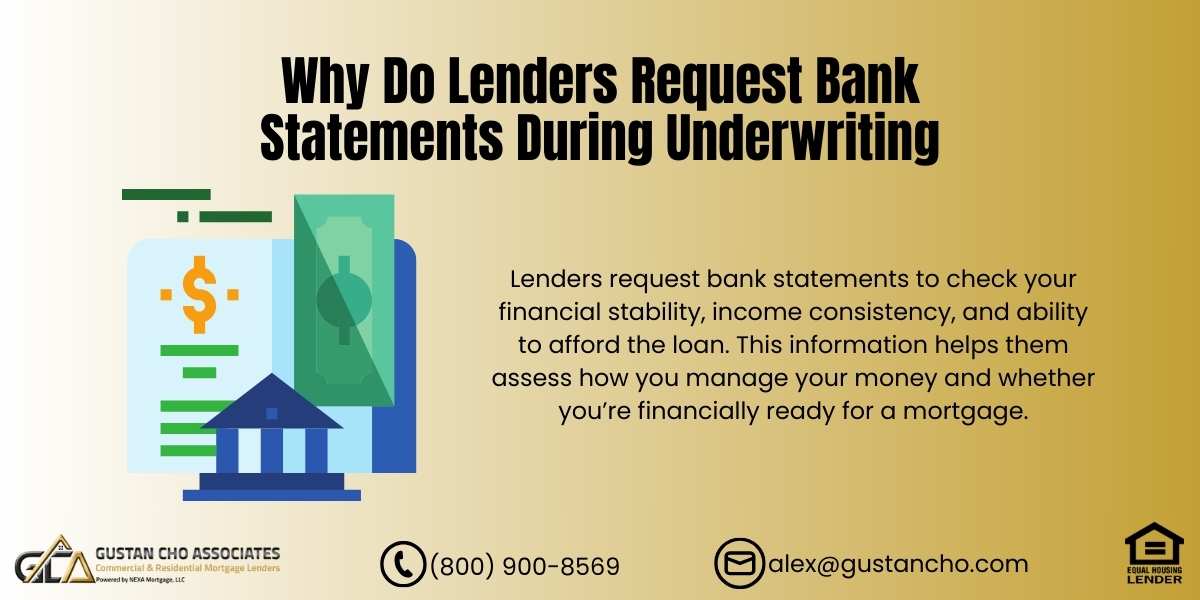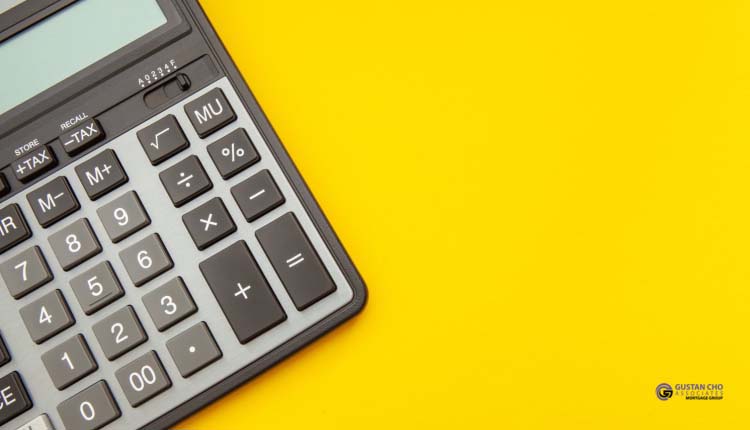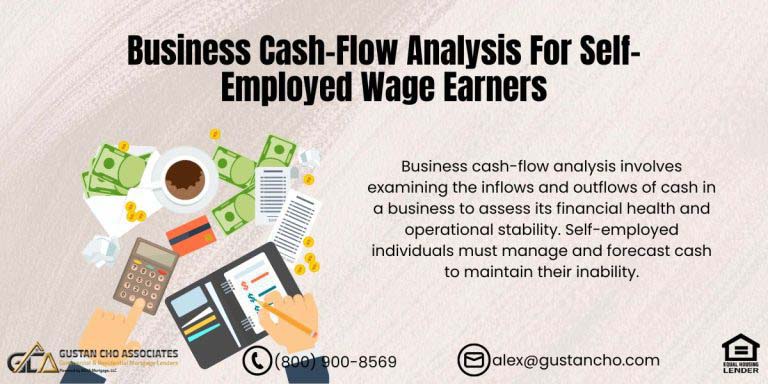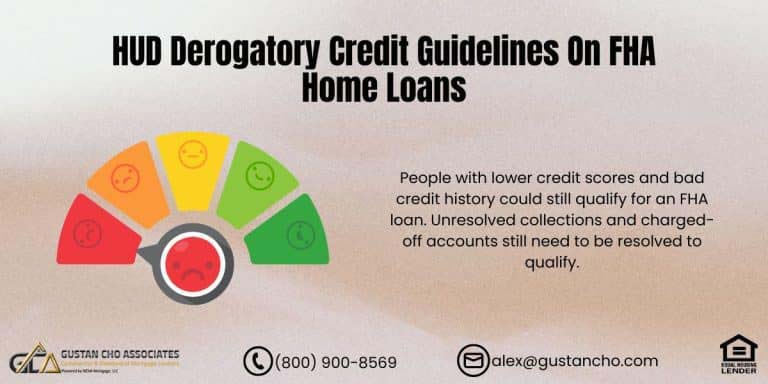Why Do Lenders Request Bank Statements? A 2024 Guide for Borrowers
If you plan to buy a home or refinance your mortgage, you’re likely wondering, “Why do lenders request bank statements?” This question comes from many borrowers, and understanding the reasoning can make the mortgage process less intimidating. In this guide, we’ll break down everything you need to know about why lenders ask for bank statements, what they look for, and how you can prepare to avoid potential roadblocks.
Whether you’re a first-time homebuyer or refinancing for a better rate, knowing what underwriters expect can make all the difference. Let’s dive in.
Why Bank Statements Matter in the Mortgage Process
Lenders use bank statements to assess your financial health. These documents give them a clear picture of your:
- Income stability: Do you have consistent deposits from a job or other sources?
- Spending habits: Are you living within your means or overdrawing your account?
- Savings: Do you have enough funds for the down payment, closing costs, and reserves?
Bank statements are one of the most important pieces of documentation because they reveal what a credit score or income statement cannot: how you actually manage your money.
What Are Lenders Looking for in Bank Statements?
When a lender requests your bank statements, they typically review the following:
- Consistent Income: Lenders want to see steady deposits, like your paycheck or business revenue. If you’re self-employed, this is even more crucial. Irregular income might raise questions, so it’s important to document all sources of funds.
- Sufficient Savings: Having enough money in the bank to cover the down payment, closing costs, and reserves (typically two months of mortgage payments) is critical. This shows lenders that you’re financially prepared.
- Irregular Deposits: Deposits outside your normal paychecks—like gifts, bonuses, or side income—will be flagged. For anything over $200 (or a similar threshold), lenders will ask for an explanation and documentation, such as a letter from the donor for gift funds.
- Overdrafts: Overdrafts are a red flag. They suggest poor financial management, which could impact your approval. Some lenders are stricter about overdrafts than others, so avoiding them is ideal.
- Large Withdrawals: Significant withdrawals may raise concerns about your ability to manage future mortgage payments. Lenders want to ensure that your spending doesn’t jeopardize your financial stability.
Start Your Process Towards Buying A Home
Apply Online And Get recommendations From Loan Experts
Why Do Lenders Request Bank Statements for 60 Days?
Most lenders only ask for the most recent two months (60 days) of bank statements. Here’s why:
- Seasoning Requirements: Funds used for your down payment and closing costs must typically be in your account for at least 60 days. This “seasoning” proves the money isn’t borrowed or from an unverifiable source.
- Up-to-date Snapshot: A couple of months of statements provide underwriters with a clear view of your financial status without extensively exploring historical details.
How Overdrafts Can Impact Your Mortgage Approval
Overdrafts are among the most common issues borrowers face when submitting bank statements. Many lenders view overdrafts as a sign of financial irresponsibility. Here’s how they might affect your application:
- Strict Lenders: Some lenders will deny your loan outright if they see overdrafts in the last 12 months.
- Lenient Lenders: Others might accept overdrafts if you provide a detailed letter of explanation and proof the issue was resolved.
Pro Tip for Borrowers with Overdrafts
If overdrafts are unavoidable, ask your bank for printed statements directly from a teller. These printouts often exclude year-to-date overdraft fees, which could help prevent additional scrutiny.
Irregular Deposits: What You Need to Know
Irregular deposits are another area underwriters carefully review. Examples of irregular deposits include:
- Cash gifts
- Income from side gigs
- Tax refunds
- Large transfers from another account
For deposits over $200, you’ll need to:
- Explain the source in writing.
- Provide documentation, such as a pay stub, gift letter, or copy of a check.
Gift Funds and Down Payments
If someone is gifting you money for your down payment, you and the donor must provide documentation. This includes:
- A signed gift letter confirming the funds are not a loan.
- Proof of the transfer, such as a deposit slip or bank statement.
Common Mistakes to Avoid When Submitting Bank Statements
- Hiding Accounts: Never try to withhold bank accounts from your lender. If they discover an undisclosed account, it could delay or derail your approval.
- Opening or Closing Accounts: Avoid opening or closing new accounts during the mortgage process. This can complicate underwriting.
- Unexplained Transfers: If you move money between accounts, document and explain the transaction to your lender.
How Technology Is Changing Bank Statement Submissions in 2024
Thanks to technological advancements, many lenders now use secure digital tools like Plaid to verify your bank statements. These tools enable you to link your bank account straight to the lender’s system, enhancing both the speed and security of the process.
Benefits of Digital Verification:
- Efficiency: Speeds up underwriting by eliminating manual reviews.
- Security: Reduces the risk of sensitive documents being mishandled.
- Accuracy: Prevents errors that might occur with paper statements.
If your lender offers digital verification, take advantage of it. It’s a safer and faster way to submit your financial information.
Take First Step Toward Making Your Dream A Reality
Apply Online And Get recommendations From Loan Experts
What to Do If You Have a Financial Red Flag
If you know your bank statements include issues like overdrafts, large withdrawals, or irregular deposits, take these steps:
- Be Honest: Disclose the issue to your loan officer upfront.
- Provide Documentation: Offer proof to explain the situation, such as receipts or letters of explanation.
- Work With Flexible Lenders: Not all lenders have the same policies. For instance, non-QM loans (non-qualified mortgages) may allow more flexibility with financial hiccups.
Alternatives for Borrowers Who Can’t Provide Traditional Bank Statements
If providing traditional bank statements is challenging due to financial inconsistencies, consider these alternatives:
- Bank Statement Loans: Designed for self-employed borrowers, these loans allow you to qualify based on 12–24 months of bank statements rather than W-2s or tax returns.
- Asset-Based Loans: If you have substantial assets, some lenders may let you qualify based on your asset reserves instead of income.
Key Takeaways: Preparing Your Bank Statements for a Mortgage
To avoid delays or denials, here’s how you can prepare your bank statements for submission:
- Review Your Statements: Check for overdrafts, large withdrawals, or irregular deposits before submitting them.
- Document Everything: Have proof of any unusual transactions.
- Avoid Big Changes: Keep your finances stable during the mortgage process—no new accounts, no large purchases.
- Ask Questions: If you’re unsure about what your lender is looking for, ask your loan officer for guidance.
Final Thoughts: Why Do Lenders Request Bank Statements?
Bank statements are more than just numbers on a page—they’re a key piece of the puzzle in proving your financial stability. By understanding why lenders request bank statements and how they use them, you can better prepare for a smooth mortgage process.
If you’re ready to take the next step toward buying a home or refinancing, work with a lender who understands your unique situation. At Gustan Cho Associates, we specialize in helping borrowers navigate the complexities of mortgage approvals—even with financial challenges like overdrafts or irregular deposits.
Have questions? Reach out today at 800-900-8569 or alex@gustancho.com and let us help you realize your homeownership dreams.
Frequently Asked Questions About Why Lenders Request Bank Statements:
Q: Why do Lenders Request Bank Statements?
A: Lenders request bank statements to check your financial stability, income consistency, and ability to afford the loan. This information helps them assess how you manage your money and whether you’re financially ready for a mortgage.
Q: What do Lenders Look for in Bank Statements?
A: Lenders look for steady income, enough savings for a down payment and closing costs, unusual deposits or withdrawals, and any overdrafts.
Q: How Far Back do Lenders Check Bank Statements?
A: Most lenders request bank statements from the last 60 days (two months). They want a recent snapshot of your finances to ensure you meet their requirements.
Q: Will Overdrafts in My Bank Statements Hurt My Chances of Getting a Mortgage?
A: Yes, overdrafts can be a red flag. Some lenders may deny your application if you’ve had recent overdrafts, while others may allow it with a good explanation.
Q: Why do Lenders Care About Irregular Deposits?
A: Lenders want to ensure the money in your account is legal and verifiable. Any unusual deposits over $200 need an explanation and proof of the source.
Q: Can I Hide a Bank Account From my Lender?
A: No, it’s a bad idea to hide accounts. If the lender discovers an undisclosed account, it can delay or deny your mortgage application.
Q: What if Someone Gives Me Money for a Down Payment?
A: It is possible to use funds given as gifts for a down payment, but the lender will need a letter from the donor and documentation showing where the funds originated.
Q: How Can I Avoid Problems with My Bank Statements During the Mortgage Process?
A: Keep your account stable by avoiding overdrafts, large withdrawals, or new accounts. Document any irregular deposits and provide explanations for unusual transactions.
Q: Are Digital Tools for Bank Statements Safe to Use?
A: Many lenders now use secure tools like Plaid to verify bank statements. These tools make the process faster, safer, and more accurate.
Q: What if I Don’t Have the Type of Bank Statements Lenders Want?
A: If you’re self-employed or have inconsistent finances, you may qualify for a bank statement or asset-based loan, which doesn’t require traditional income documents.
Related> Overdrafts In Bank Statements
This blog about “Why Do Lenders Request Bank Statements During Underwriting” was updated on December 4th, 2024.
Take First Step Toward Your Dream House
Apply Online And Get recommendations From Loan Experts










